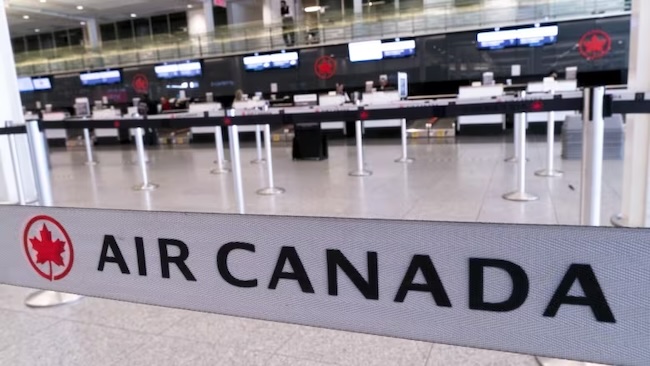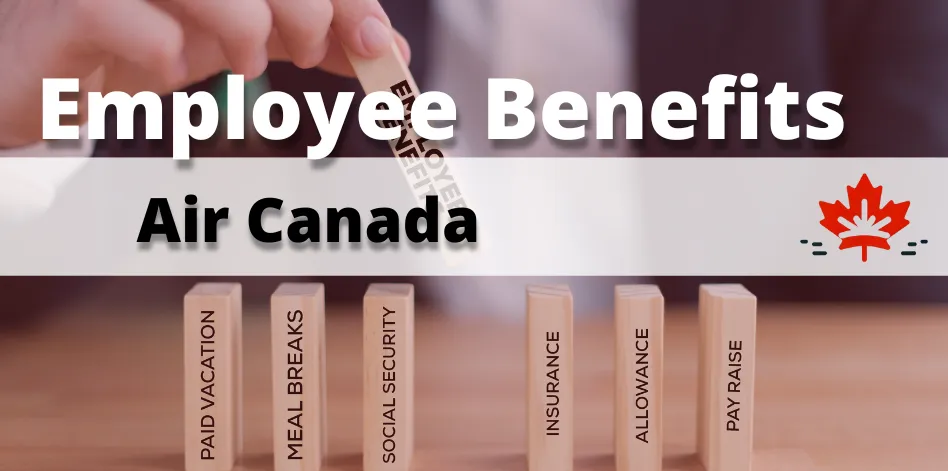If you’ve ever dreamed of soaring with a career at Air Canada, you’re in for a journey that merges passion with opportunity. As one of the leading airlines, Air Canada offers a diverse range of job prospects that cater to various skills and interests, all set against the backdrop of the dynamic airline industry.
This article provides essential insights on navigating the application process, acing the interview, and what it truly takes to become part of the Air Canada family. Keep reading to unlock the door to your dream job in the skies!
Securing Your Ideal Position at Air Canada
To secure your ideal position at Air Canada, it’s essential to start by researching the various job roles available, which range from in-flight services to ground and maintenance operations, or corporate positions.
One should first visit the Air Canada Careers website to get an overview of the current job openings. A tailored resume that highlights relevant experience and skills is crucial for standing out in the application process. Emphasize any previous experience in customer service, hospitality, or aviation. If you don’t have direct industry experience, underscore transferrable skills like communication, teamwork, and problem-solving.
It is also advisable to reach out to current employees at Air Canada through professional networking platforms such as LinkedIn. This can provide insider insights on the company culture and potentially lead to recommendations that bolster your application.
Pursuing industry-recognized certifications or additional training can give applicants an edge. For example, fluency in Canada’s official languages—English and French—is a significant asset for any position at Air Canada and, in many cases, is a requirement.
Applicants should prepare for the interview process by understanding the core values of Air Canada, which include safety, sustainability, and excellent customer service. Demonstrating how one’s personal values align with these company pillars can make a considerable difference in the hiring process.
In addition to full-time careers, Air Canada offers part-time and seasonal jobs for those looking for more flexible work arrangements. This can be an excellent way to gain experience within the company and could potentially lead to full-time employment.
Is Air Canada a good airline to work for?
Air Canada, as the largest airline of Canada, is generally considered a reputable employer within the aviation industry. However, like any major corporation, experiences can vary widely depending on an individual’s role, location, and department.
For many in the aviation sector, working for Air Canada can offer a range of job opportunities, from piloting and flight attendant roles to a variety of positions in airport operations, customer service, baggage handling, and administrative roles. The company is known for providing its employees with benefits such as travel perks, which allow employees (and often their family members) to fly at reduced rates or for free on stand-by.
Air Canada also tends to offer competitive salaries and health benefits, which are important considerations for job seekers. Additionally, union representation is available for many positions, which can contribute to better job security and working conditions.
The airline industry is known to be highly susceptible to external factors such as economic downturns, global events (like the COVID-19 pandemic), and fluctuations in fuel prices, all of which can impact job stability. Employees may also face demanding work schedules, especially those working as cabin crew or pilots, where long hours and layovers away from home are common.
As with any potential employer, it’s advisable to research and read current employee reviews on platforms like Glassdoor or Indeed to get a more comprehensive understanding of the working conditions and company culture. It’s also beneficial to network with current or former employees to gain firsthand insights into what it’s like to work for Air Canada.
Does Air Canada offer good compensation?
Air Canada, being the largest airline of Canada, typically offers competitive compensation packages to its employees, including a range of benefits. The actual salary and benefits can vary greatly depending on the role, experience level, and location within the company.
Pilots and flight attendants often enjoy benefits such as flexible work schedules, travel perks, and comprehensive health insurance plans. For corporate or ground staff, Air Canada might offer alternative benefits such as retirement savings plans, employee stock purchase plans, and various health and wellness programs.
It’s worth noting that like many large corporations, Air Canada probably adjusts its compensation packages to be aligned with market standards. This means that they regularly review and update their offerings to ensure they remain attractive to both existing employees and potential new hires.
For specific figures or more detailed insight into their compensation rates, you would have to look at current job postings, employee testimonials, or reach out directly to their human resources department. Furthermore, during unionized positions, compensation is often negotiated through collective bargaining agreements, which can influence the remuneration and benefits provided.
How long does the Air Canada recruitment process take?
The recruitment process for Air Canada can vary based on the position you are applying for. Generally, the process may take anywhere from a few weeks to several months. It usually involves several steps:
1. Online Application: Submit your resume and cover letter through the Air Canada Careers page. Ensure that your application is complete and accurate, as this is the first step in the screening process.
2. Application Review: The Human Resources team reviews applications to ensure candidates meet the minimum qualifications and select those who appear to be a good fit for the position.
3. Assessment Tests: For some positions, you may be required to complete assessment tests. These could include personality, cognitive, or job-specific skills assessments.
4. Interviews: Selected candidates are typically invited for one or more interviews. Interviews may include phone screens, video conferences, or in-person meetings.
5. Background Checks and References: If you progress past the interview stage, you’ll likely need to undergo background checks and provide references.
6. Job Offer: Successful candidates will receive a job offer, which will include details about salary, benefits, and other employment conditions.
7. Pre-Employment Training: Some roles, especially those within flight operations, may require pre-employment training before officially starting the job.


